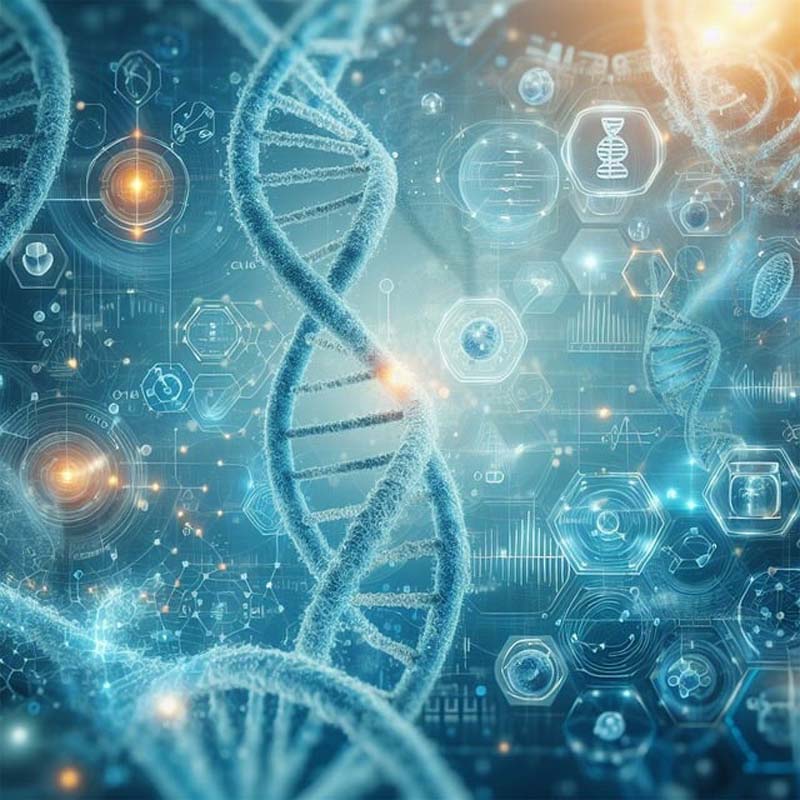
403
Sorry!!
Error! We're sorry, but the page you were looking for doesn't exist.
Global BioGenome Project to Decode Genetic Code of 1.67 Million Species
(MENAFN) An ambitious international endeavor to map the genetic makeup of Earth’s diverse species is entering its second phase, with a goal of sequencing the DNA of 1.67 million species over the next decade, scientists confirmed on Monday.
The Earth BioGenome Project (EBGP), often hailed as biology's equivalent to the Apollo moon landing, unites 2,200 researchers from 88 countries, according to media.
Launched in 2020, this groundbreaking initiative is focused on creating a comprehensive "digital bank of life" to safeguard biodiversity amidst the ongoing loss of species. With approximately $4 billion in backing, the project has already sequenced the genomes of 3,500 species in its first phase, which ran from 2020 to 2024.
The upcoming four years will see a significant ramp-up in efforts, with plans to sequence 150,000 species—translating to an ambitious 3,000 genomes per month. This acceleration is made possible by technological breakthroughs, which have made genome sequencing 10 times faster and eight times more affordable compared to just five years ago.
"We’ve laid the groundwork for building our digital ‘tree of life,’ and our initial results are already reshaping what we know about evolution, ecosystem function, and biodiversity," said Mark Blaxter from the UK’s Wellcome Sanger Institute, the lead author of the study. "As species disappear and ecosystems degrade, our goal is to capture and preserve the biological blueprint of life on Earth for future generations."
Harris Lewin, senior author of the paper and a professor at Arizona State University, highlighted the growing need to accelerate the project as biodiversity loss intensifies worldwide. He noted that the initiative is shifting genomics from isolated, expensive sequencing projects to a more global, scalable, and inclusive effort.
The initiative places significant emphasis on inclusivity, especially in biodiversity-rich regions of the Global South. In these areas, researchers will be equipped with "gBoxes"—mobile laboratories that allow for local DNA analysis without the need to ship samples abroad, thereby fostering greater accessibility and efficiency in the research process.
The Earth BioGenome Project (EBGP), often hailed as biology's equivalent to the Apollo moon landing, unites 2,200 researchers from 88 countries, according to media.
Launched in 2020, this groundbreaking initiative is focused on creating a comprehensive "digital bank of life" to safeguard biodiversity amidst the ongoing loss of species. With approximately $4 billion in backing, the project has already sequenced the genomes of 3,500 species in its first phase, which ran from 2020 to 2024.
The upcoming four years will see a significant ramp-up in efforts, with plans to sequence 150,000 species—translating to an ambitious 3,000 genomes per month. This acceleration is made possible by technological breakthroughs, which have made genome sequencing 10 times faster and eight times more affordable compared to just five years ago.
"We’ve laid the groundwork for building our digital ‘tree of life,’ and our initial results are already reshaping what we know about evolution, ecosystem function, and biodiversity," said Mark Blaxter from the UK’s Wellcome Sanger Institute, the lead author of the study. "As species disappear and ecosystems degrade, our goal is to capture and preserve the biological blueprint of life on Earth for future generations."
Harris Lewin, senior author of the paper and a professor at Arizona State University, highlighted the growing need to accelerate the project as biodiversity loss intensifies worldwide. He noted that the initiative is shifting genomics from isolated, expensive sequencing projects to a more global, scalable, and inclusive effort.
The initiative places significant emphasis on inclusivity, especially in biodiversity-rich regions of the Global South. In these areas, researchers will be equipped with "gBoxes"—mobile laboratories that allow for local DNA analysis without the need to ship samples abroad, thereby fostering greater accessibility and efficiency in the research process.

Legal Disclaimer:
MENAFN provides the
information “as is” without warranty of any kind. We do not accept
any responsibility or liability for the accuracy, content, images,
videos, licenses, completeness, legality, or reliability of the information
contained in this article. If you have any complaints or copyright
issues related to this article, kindly contact the provider above.


















Comments
No comment